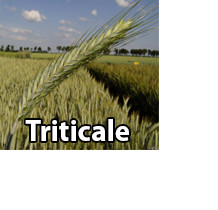- weight loss.
- vomiting.
- abdominal bloating.
- abdominal pain.
- persistent diarrhea or constipation.
- pale, fatty, foul-smelling stools.
An immune reaction to eating gluten, a protein found in wheat, barley, and rye.
Common
More than 200,000 US cases per year
Treatment can help, but this condition can't be cured
Requires a medical diagnosis
Lab tests or imaging often required
Over
time, the immune reaction to eating gluten creates inflammation that
damages the small intestine's lining, leading to medical complications.
It also prevents absorption of some nutrients (malabsorption).
The
classic symptom is diarrhea. Other symptoms include bloating, gas,
fatigue, low blood count (anemia), and osteoporosis. Many people have no
symptoms.The mainstay of treatment is a strict gluten-free diet that can help manage symptoms and promote intestinal healing.
Amazon BUY What is Gluten?
Gluten is a general name
for the proteins found in wheat (wheatberries, durum, emmer, semolina,
spelt, farina, farro, graham, KAMUT® khorasan wheat and einkorn), rye,
barley and triticale – a cross between wheat and rye. Gluten helps foods
maintain their shape, acting as a glue that holds food together. Gluten
can be found in many types of foods, even ones that would not be
expected.
The Big 3: Wheat, Barley, Rye
Wheat is commonly found in:

Barley is commonly found in:
Rye is commonly found in: 


Oats can add diversity and offer many nutritional benefits to the gluten-free diet. CDF’s medical experts recommend only oats labeled gluten-free as cross-contact may occur when oats are grown side-by-side with wheat, barley or rye.
Patients eating oats from any source may complain of symptoms. This
could be due to one or more of several factors, including intolerance to
the increase in fiber, food intolerances, contamination with gluten,
or, rarely, the development of an immune response to oat protein,
similar to that occurring due to gluten.
The decision to include
oats in your diet should be made with your physician or dietitian and
should include monitoring of your anti-tissue transglutaminase
(anti-tTG) antibody levels.
Read more | |
|
| |
| Amazon BUY | |
OR Direct and get same day FREE Shipping and 20% off | |





